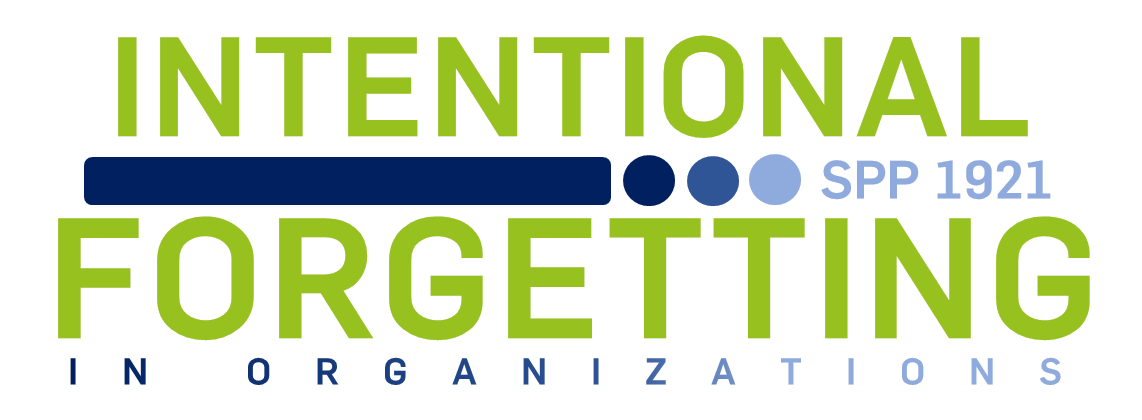
COFFEE - Kollaboratives Vergessen für die Produktentwicklung
2016 - 2019: EVOWIPE - Explizites Vergessen ontologiebasierten Wissens in der Produktentwicklung
- What is this project about?
In product development, effort and costs can be reduced by reusing knowledge and experience from completed projects. However, this is challenging because of the heterogeneous management of product documentation and the complexity of the models. The COFFEE project investigates how deliberate forgetting (Intentional Forgetting) of non-relevant model elements controls complexity and how reuse can be better targeted.
- What are the results of the project so far?
COFFEE builts up on our first phase project EVOWIPE. EVOWIPE aimed at enriching the product development process in engineering with intentional forgetting methods. We built ontological knowledge bases as a representation of the outcome from product design process steps and designed multiple intentional forgetting operators to support the development process and changing requirements [1,2,3]. In COFFEE, we are extending these ideas in different directions. We are, in particular, enriching the knowledge base and intentional forgetting operators with Design Rationale and intent to provide the reasons behind adaptions and variants in product design.
[1] P. Kügler, P. Kestel, C. Schon, M. Marian, B. Schleich, S. Staab, S. Wartzack:
Ontology-based Approach for the use of Intentional Forgetting in Product Development. DESIGN 2018: 1595-1606.
[2] C. Schon, S. Staab, P. Kügler, P. Kestel, B. Schleich, S. Wartzack:
Metaproperty-Guided Deletion from the Instance-Level of a Knowledge Base. EKAW 2018: 407-423
[3] C. Schon, S. Staab:
Towards SPARQL Instance-Level Update in the Presence of OWL-DL TBoxes. JOWO 2017.
- What are the objectives of the project?
The COFFEE project aims to make the reuse of product knowledge through Intentional Forgetting (IF) more efficient and more targeted. For this, product knowledge is initially represented in an ontology. Then, intentional forgetting mechanisms relevant to the development process are analyzed, and suitable forgetting operators are developed, which convert these IF mechanisms to ontologies.
- How can organizations use the results?
Through the use of Intentional Forgetting, only the relevant knowledge elements are made available to the product developer. This reduces the complexity of reuse to a greater extent and makes adapting technical systems more manageable. Intentional Forgetting creates space for new ideas.
Project team
| Prof. Dr. Ing. Wartzack, Sandro |

|
Chair of Design Engineering | Applicant |
ORCID ResearchGate Google Scholar |
wartzack@mfk.fau.de |
| Dr.-Ing. Schleich, Benjamin |

|
Chair of Design Engineering |
ORCID ResearchGate Google Scholar |
schleich@mfk.fau.de | |
| Kügler, Patricia, M.Sc. |

|
Chair of Design Engineering | Applicant |
ResearchGate Google Scholar |
kuegler@mfk.fau.de |
| Prof. Dr. Staab, Steffen |

|
Institut für Parallele und Verteilte Systeme | Applicant |
ORCID ResearchGate Google Scholar |
steffen.staab@ipvs.uni-stuttgart.de |
| Dr.rer.nat. Hernández, Daniel |

|
Institut für Parallele und Verteilte Systeme | daniel.hernandez@ipvs.uni-stuttgart.de | ||
| Xiaong M.Sc, Bo |

|
KI Analytic Computing | bo.xiong@ipvs.uni-stuttgart.de |
Former collaborators
| Dr. Potyka, Nico |

|
ResearchGate Google Scholar |
|||
| Krämer, Teresa |

|
ResearchGate | |||
| Kestel, Philipp |

|
ORCID | |||
| Luft, Thomas |

|
ORCID ResearchGate Google Scholar |
|||
| Dr. Schon, Claudia |

|
ResearchGate |



